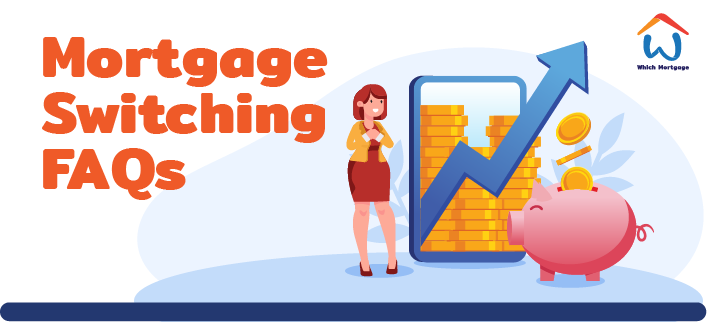Why switch?
You could consider switching your mortgage for the following reasons:
- Reduce your interest rate
- Reduce your monthly mortgage repayments
- Save significant sums over the term of your mortgage
- Your current fixed term is nearing its end.
Is switching for everyone?
While switching is a viable option for many, it is necessary to consider certain factors to ascertain whether switching is right for you:
- The outstanding balance on your mortgage: If the amount you have left to pay on your mortgage is small, you might not be able to switch because some lenders have a minimum amount they are willing to lend.
- Whether you have a fixed-rate mortgage with your current lender: You may be charged a penalty fee for switching out of a fixed-rate mortgage early, so you may need to wait until the end of the term before you can consider switching. However, sometimes the penalty for breaking a fixed-rate may be far less than the savings you would make by switching mortgage lender, so it's important to rely on a mortgage specialist for advice to help you make the right decision.
- Your credit rating: You must still have a good credit rating. A credit check will be carried out by the lender you're trying to switch to and if you taken out new loans or used credit cards and had difficulties repaying these, your switching application may not be considered favourably.
- The term remaining on your mortgage: You may not be able to switch if you only have a few years remaining on your mortgage because lenders generally prefer that you have a number of years left on your mortgage term when switching.
Can you be penalised for switching your mortgage?
Other than potential penalties for switching out of a fixed-rate mortgage, there are generally no penalties for switching mortgage providers. Even if you have received a cashback offer you typically do not need to repay any received cashback when switching.
What are the steps involved in switching your mortgage?
- Know your current situation: Find out how much is still owed on your mortgage, the term remaining and the current interest rate you're paying. This information will be on your most recent mortgage statement. Once you provide us with this information, we will begin comparing different mortgage products on the market to help you find the mortgage that is right for you.
- Start the switch: We will guide you through the options available to you and advise you of the documents required in support of your switching application. These documents include:
- Proof of identity
- Proof of your current address
- Proof of income and your employment status
- Your bank statements
- Evidence of savings.
- House valuation: The next step is to get a professional valuation of your home. We can arrange this for you. The valuation is required so that your new lender can determine how big your mortgage is in relation to the value of your home, and therefore how much equity you have. The more equity, the better.
- Legal aspects: You will need to appoint a solicitor to take care of the conveyancing and legal documents. In general, the legal fees for switching your mortgage are less than the fees for first time buyers, and at Which Mortgage we can put you in touch with a solicitor who offers competitive rates. Furthermore, if you are due to receive cashback, the legal fees could be covered by that.
- Mortgage protection: When you switch your mortgage you do not need to take out a new mortgage protection policy if the amount you borrow and the term of your mortgage remains the same. All you would need to do is contact your current insurance provider and get them to reassign your existing policy to your new mortgage lender.
- Direct debit: The last step in the process is setting up the direct debit. When your mortgage is approved, your lender will ask you to complete a direct debit form. It is important to remember to cancel the direct debit with the lender you are switching from to ensure that no further payments are taken.
Don't miss out on potential savings - make the smart move and get in touch with us today to start your mortgage switching journey!
More Questions?
Talk to one of our mortgage specialists now!
BOOK AN APPOINTMENT

.jpg)

